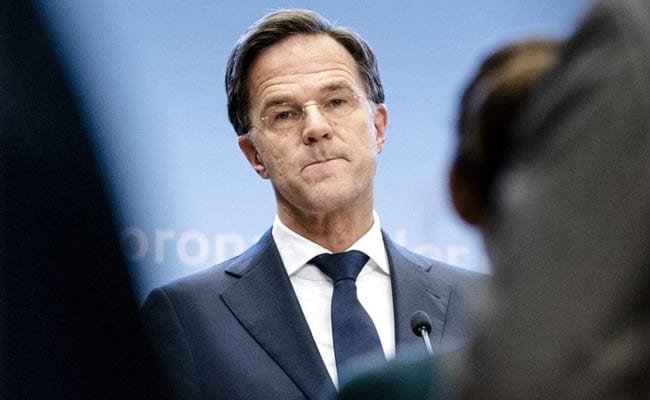Why has the Dutch government collapsed? The Dutch government of Prime Minister Mark Rutte dissolved on Friday after coalition parties failed to achieve an agreement on immigration policy.
The parties were unable to reach an agreement on how to deal with the issue, which has become increasingly polarised in the Netherlands in recent years.
Why has the Dutch government collapsed?
The Dutch government coalition, which was created 18 months ago, was thrown into disarray when Prime Minister Rutte recently proposed limiting the right to family reunions for migrants fleeing war zones to 200 persons per month after two years. The idea was rejected by two coalition parties, D66, and the Christian Union, resulting in a significant escalation of the parties’ divisions.
PM Rutte’s own People’s Party for Freedom and Democracy, or VVD, has been under internal pressure to limit the number of asylum seekers arriving in the Netherlands. The party’s most conservative members believe that the country is being overloaded by the amount of refugees, and that action must be taken to reduce the influx.
The D66 party and the smaller Christian Union, known as the coalition’s more progressive parties, have warned Prime Minister Rutte that they will not accept any measures that make it more difficult for refugees to enter the Netherlands.
Also read: Why Dutch people don’t say sorry?
According to the Dutch election authority, the earliest new elections can be held is in mid-November.
PM Rutte has stated that he will lead a caretaker administration until new elections are held in mid-November. The administration would prioritize responsibilities such as assisting Ukraine, which was invaded by Russia in February.
“It is no secret that the coalition partners have very different views on migration policy. This evening, we have unfortunately reached the conclusion that the differences are insurmountable. For this reason, I will shortly present my written resignation to the king in the name of the whole government,” PM Rutte said as quoted by the news agency AFP.
The coalition’s unexpected disintegration, dubbed “Rutte IV,” has provoked deep discord among the parties. The coalition had ruled for a little more than a year and a half.
What next for Mark Rutte?
Mark Rutte, known for surviving one political crisis after another, is the longest-serving prime minister in Dutch history and, together with Hungary’s Viktor Orban, one of the European Union’s most senior leaders. However, he had his worst Senate election result this year, as the Farmer-Citizen Movement (BBB) became the Dutch upper house’s largest party.
Prime Minister Rutte has submitted his resignation to King Willem-Alexander, who will meet with him today at his palace.
